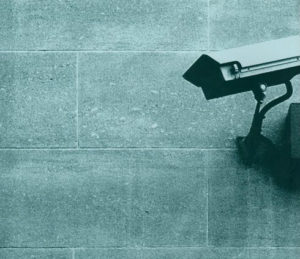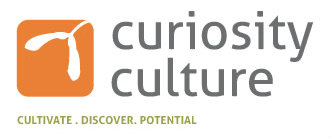Who Do You Trust? (Power & Trust Pt 1)
How to Play Trust for Power
The theme of Berlin Change Days 2017 was ‘Trust & Power’. One of the earliest exercises of the weekend conference was on the nature of trust and much was made of its significance in positive transformation. When I think about trust I initially think of how liberating it is. It’s profoundly liberating to be able to trust someone; a parent, a brother or a sister, a friend, a lover, a mentor, a confidante, a teacher, a therapist. To be able, with confidence, to open and reveal what is in your mind and heart and body is profoundly liberating and empowering. It allows you to discover yourself, and brings you home to a unification of your self and your soul.

In one presentation at Berlin Change Days eight pillars of trust were given: honesty, reliability, transparency, clarity, credibility, fairness, keeping promises and respect. It was suggested by the speaker that many of these pillars must be met successfully for any organisation to succeed. But the last year in the world has been an ominous one, and has cast a strange light on the nature of trust. Racial tensions and nationalist factions have increased, economic inequalities have increased, the politics of division and regression seem to be in the ascent. The elected leader of the so-called ‘free world’ – still, for the time being, the most powerful country in the world – is essentially devoid of any clear comprehension of or capacity for telling the truth. “Truth’ for him is simply an expediency, and what is inconvenient is ‘fake news’. Donald Trump hasn’t demonstrated even one of the eight pillars of trust. And yet a majority of Americans placed their trust in him to become the most powerful man on earth.
Why?
Because he promised them what they wanted:
that when they lose it’s unfair,
that the system’s rigged against them,
that everyone else is cheating,
that he can make us safe again,
that he can make America great again.
Besides knowing what you desire every con artist knows that the more you want something – whether it’s methamphetamine or a pipe dream – the less you need the eight pillars of trust to believe in someone, or something. The four balls that a con artist needs to juggle are a knowledge of your desire/fear (desire and fear are flip sides of the same coin), a knowledge of the urgency of that desire/fear, an ability to win (enough of) your trust, and a willingness to exploit you.
I remember being blatantly swindled a couple of times in my youth. Once I was traveling through a town in the south of Egypt and was pushing for a particularly generous exchange rate on the black market. I wasn’t getting what I wanted, and felt like people were trying to rip me off. I was getting increasingly frustrated when suddenly a young man appeared on a bicycle out of nowhere and offered me the rate I wanted. We made the deal, and he hopped on his bike and before he was even out of sight I saw that he had duped me by folding over the inside bills as he counted them out to me. He knew what I wanted, knew that I was getting frustrated, in the few moments that we were engaged his casual and friendly demeanour won my trust, and he was only too happy to take my money. I was a white kid in a poor village in the south of Egypt, and the lad who burned me was just doing what he needed to do to get by.
Another time I was playing music for loose change in a Toronto subway station. During a brief break a very pleasant man came over to tell me how much he loved my music, and how great I was, and wondered if he could help me to get some gigs and make some decent money. We were good chums by now. He had to dash off to pick up some merchandise he wanted to show me, and it was pouring rain and cold and he was underdressed so could he borrow my (pretty groovy) jacket, he’d be right back… You know the rest. He played my pipe dream, spun – improvised – a brilliant yarn to win my trust, and was ok with casual theft. His focus, engagement and ingeniousness in improvising such a spellbinding yarn was actually worth the price of the jacket.
Trust & Big Data
So, what does a Catholic confessional have in common with Google and Facebook? They are both trusted with deep secrets, and they store our confessions/data, and this knowledge can be used for power. In the hands of a trustworthy practitioner confessional can be a liberating experience of safely venting troubling thoughts and experiences in confidence. But there are also unscrupulous practitioners, and the Roman Catholic church’s authority was powerfully reinforced by levering the desire for heaven and the fear of hell for unprecedented access into the secret lives of parishioners. Google and Facebook offer instant access to limitless information, and instant connection and distribution to whole universes of people near and far. But they also lever our need for access to information and communication, and our urgent desire for social connection, for unprecedented access to floods of data on our relationships, our networks, our purchases, our locations, our ideas, our questions, our convictions, our addictions, our perversions, our sorrows, our hopes and our dreams. We trust Google and Facebook enough to trade our privacy to gratify our hunger for an instant hit of social connection, and Google and Facebook reap mega profits by charging for market access to custom datasets of people most likely to purchase a product.
 The KGB or the CIA in a decade of surveillance and informants couldn’t secure the detail of information on a citizen that billions of people voluntarily pump into Google and Facebook in a month. This notion is taken to a whole new level in a government ‘Social Credit System’ being rolled out in China for 2020 [1]How China Wants to Rate it’s Citizens’, New Yorker. In this system what you purchase; where you are and where you go; who your friends are and how you interact with them; what you watch and do online; and what bills and taxes you pay (or not) will be tabulated into a single, public, “Citizen Score”. This score [2]‘Big data meets Big Brother as China moves to rate its citizens’, WIREDwill be used to determine your eligibility for a mortgage, a loan, a job, where your children can go to school, whether, and by what mode, you will be able to travel, not to mention your likelihood of landing a date. In an even deeper Orwellian twist, the Citizen Scores of your friends will affect your own score. The system, which really amounts to a heretofore impossible level of state surveillance, is paradoxically being touted as having the intention of enhancing national “trust” to build a culture of “sincerity”. Right now the system is voluntary but will in due course be required, but here’s the kicker, people are already signing up for it in droves. Why? There are lures: rewards and “special privileges” for citizens who prove themselves to be “trustworthy”. Already Chinese citizens boast of their scores on social media.
The KGB or the CIA in a decade of surveillance and informants couldn’t secure the detail of information on a citizen that billions of people voluntarily pump into Google and Facebook in a month. This notion is taken to a whole new level in a government ‘Social Credit System’ being rolled out in China for 2020 [1]How China Wants to Rate it’s Citizens’, New Yorker. In this system what you purchase; where you are and where you go; who your friends are and how you interact with them; what you watch and do online; and what bills and taxes you pay (or not) will be tabulated into a single, public, “Citizen Score”. This score [2]‘Big data meets Big Brother as China moves to rate its citizens’, WIREDwill be used to determine your eligibility for a mortgage, a loan, a job, where your children can go to school, whether, and by what mode, you will be able to travel, not to mention your likelihood of landing a date. In an even deeper Orwellian twist, the Citizen Scores of your friends will affect your own score. The system, which really amounts to a heretofore impossible level of state surveillance, is paradoxically being touted as having the intention of enhancing national “trust” to build a culture of “sincerity”. Right now the system is voluntary but will in due course be required, but here’s the kicker, people are already signing up for it in droves. Why? There are lures: rewards and “special privileges” for citizens who prove themselves to be “trustworthy”. Already Chinese citizens boast of their scores on social media.
Remember the four balls that a con artist needs to juggle: a knowledge of your desire, a knowledge of the urgency of that desire, an ability to win your trust, and a willingness to exploit you. The Social Credit System, with such transparent access to its citizens habits and patterns, can manipulate the relationship of trust in previously impossible ways by preying on its citizenry’s desire for approval and status to gain power and control over them.
Who do you trust?
Pt.2, ‘How Do You Trust’, coming soon!


